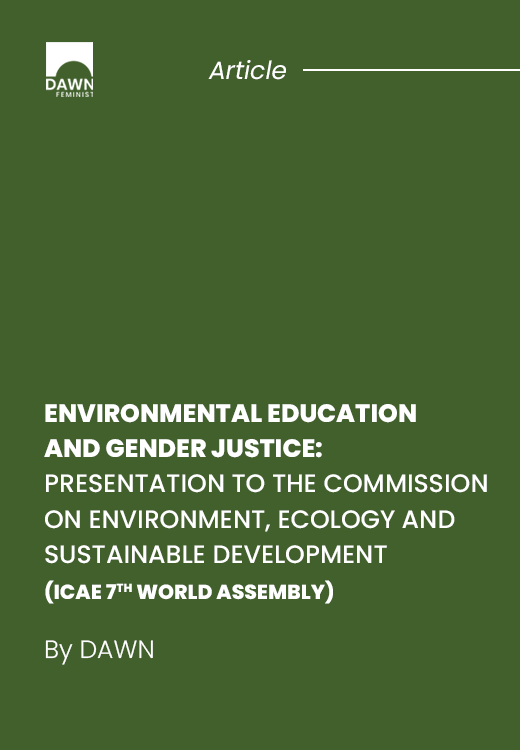Presentation to the Commission on Environment, Ecology and Sustainable Development (ICAE 7th World Assembly, Nairobi, Kenya, January 17-19 2007)
Place matters because without a recognition of and attachment to places, we cannot defend the environment, we cannot feel a struggle, we cannot fight for anything. [This is not unlike saying that without a recognition and attachment to women as a group, we cannot defend women’s rights.]
However, we need to recognise the different ways and the different places that we are attached to. They are not all ‘natural’. They are what we make them and in this way, we can make them whatever we want. We can protect and conserve places, enhance and modify places, abuse and overlook places.
But as the margins of ecological survival are shrinking and, in many places, nature is already ‘answering back’, the lives and livelihoods of many people, especially women in the global south, are under constant threat of not only total ruin (through sea levels rising), but also total transformation (through deforestation and monoculture plantations).
While many environmental problems may not appear to differentiate between men and women, there is no doubt that the social and political responses to these problems are profoundly gendered. For instance, while a tsunami strikes everyone rarely do relief packages include sanitary napkins for women.

